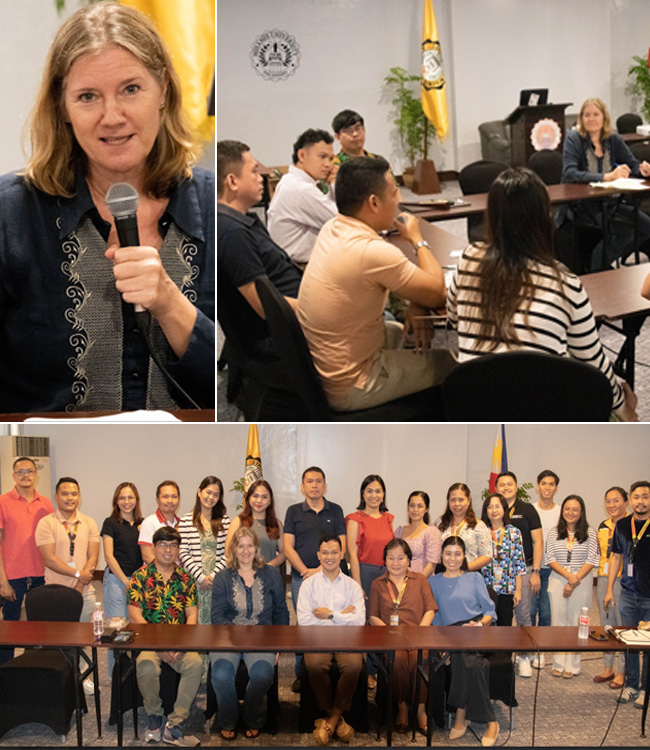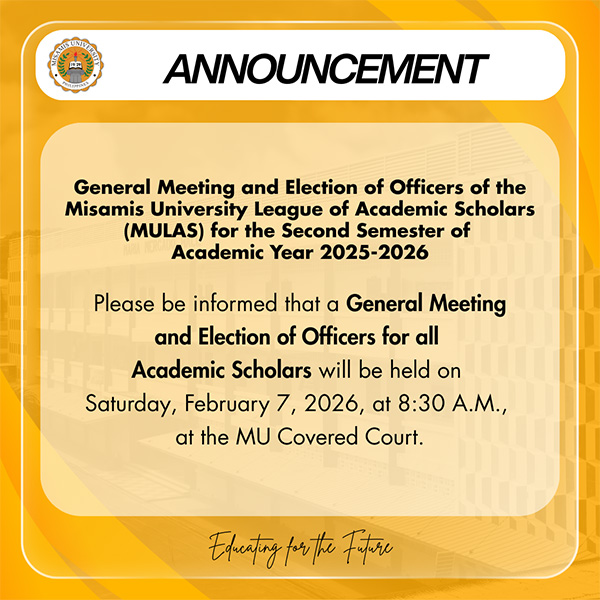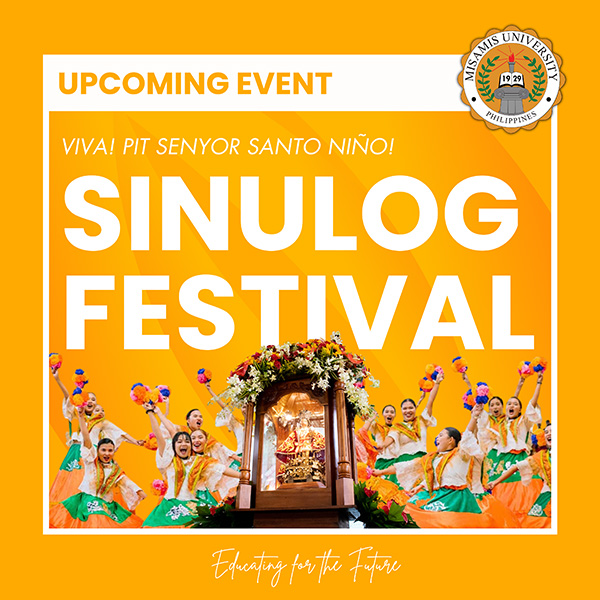
Internationalizing Research at Misamis University through Collaboration with German Institutions
On the morning of March 8, 2025, the Internationalization Forum Series continued again with a session featuring Dr. Monica Fröhlich, a representative of the Deutscher Akademischer Austauschdienst (DAAD) or German Academic Exchange Service, and Mr. Gerald G. Aguilar, a DAAD scholar, as resource persons for the event.
The forum aimed to advance the internationalization of research at Misamis University (MU) by exploring potential collaborations with German institutions. Establishing global research partnerships would enhance the university’s research capabilities and strengthen its presence in the international academic community.
A total of 20 participants, including deans, research coordinators, and linkage coordinators, attended the event. The forum followed a roundtable discussion format that allowed participants to engage in meaningful discussions and interactions. Dr. Russel P. Galindo, Director of the Research Center, facilitated the session, providing a platform for participants to share their research interests, concerns, and institutional priorities.
After addressing the participants' concerns about research, Dr. Fröhlich focused the discussion to the research landscape in Germany. She provided insights into the key characteristics of German research to help participants understand how to align their research interests with potential German collaborators.
In her presentation, Dr. Fröhlich outlined Germany’s national research goals, emphasizing its commitment to supporting and advancing innovative ideas. She highlighted that German research is people-centered and has a strong tradition of excellence, as reflected in the country’s numerous Nobel laureates.
She explained that business enterprises constitute the largest sector engaged in research in Germany, followed by higher education institutions (HEIs) and government-funded research initiatives. As such, German research institutions are primarily driven by three key pillars: industrial research, HEIs, and non-university research institutes.
Regarding business and industrial research, she noted that Germany places a strong emphasis on research and development (R&D) and innovation. The key sectors leading this effort include automotive engineering, mechanical engineering, electronics, information and communication technologies, and pharmaceuticals.
Furthermore, she introduced Germany’s major research funding institutions, particularly the Deutscher Akademischer Austauschdienst (DAAD) and the Alexander von Humboldt Foundation, among others. She also highlighted Germany’s four major research organizations, which play a significant role in scientific research: Helmholtz Association, Fraunhofer Gesellschaft, Max Planck Gesellschaft, and Leibniz Association.
Dr. Fröhlich emphasized that collaborating with German research institutions can broaden perspectives in education and science, particularly through international exchange programs. She noted that German funding opportunities are available for both institutional research collaborations and individual graduate students pursuing master's or PhD programs.
To support this, she provided links to research opportunities in Germany and detailed information on available funding options. Additionally, she guided participants on securing research funding, writing research proposals, and publishing their work.
Most importantly, she emphasized that if MU faculty wish to collaborate with German researchers, they must ensure that their research proposals are framed within the appropriate German context and aligned with Germany’s strong tradition of innovation to successfully secure research partnerships.
Overall, the forum provided valuable insights into current research trends, particularly in a highly developed country like Germany. It helped participants understand Germany’s research landscape and clarified the role of business and industry-driven innovation in engineering and other allied sciences as key contributors to the country’s economic development.
These insights encouraged participants to align their research focus with areas that have demonstrated long-term economic benefits. More importantly, the discussion highlighted the potential for collaborations with German researchers, enabling Misamis University faculty to explore strategic partnerships in various scientific fields. Such collaborations would significantly enhance the internationalization of research at Misamis University.
Announcement

|

|

|
Photo Gallery
 Turnover of solar energy management from WEGEN to MU
Turnover of solar energy management from WEGEN to MU
|
 MU Sinulog Celebration 2026
MU Sinulog Celebration 2026
|
 MU Winter WonderLand Christmas Party 2025
MU Winter WonderLand Christmas Party 2025
|
Videos

|

|

|















